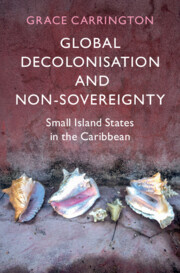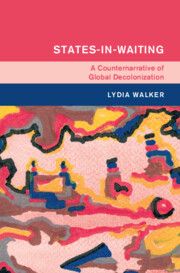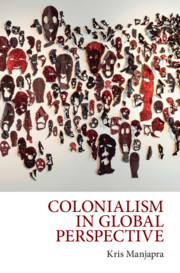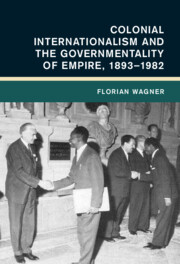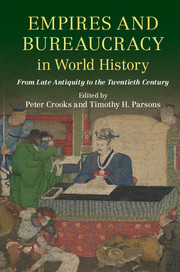Global Decolonisation and Non-Sovereignty
Non-sovereign territories today account for more than half the states in the Caribbean but regional and global histories of the twentieth century tend to exclude them from narratives of protest and change. This book argues that our current understanding of global decolonisation is partial. We need a fuller picture which includes both independent and non-independent states, and moves beyond a focus on political independence, instead conceptualising decolonisation as a process of challenging and dismantling colonial structures and legacies. Decolonisation is neither an inevitable nor a linear process, but one which can ebb and flow as the colonial grip is weakened and sometimes restrengthened, often in new forms. Using the Cayman Islands, the British Virgin Islands, Martinique and Guadeloupe as case studies, Grace Carrington demonstrates that a focus on the processes of decolonisation in these non-sovereign states enriches our understanding of the global experience of twentieth century decolonisation.
- Offers a comparative analysis of the Francophone and Anglophone Caribbean, comparing experiences across linguistic and colonial boundaries
- Provides both a macro and micro-level view of decolonisation in non-sovereign territories which demonstrates how events that unfolded were influenced by both global trends and specific local factors
- Explores historical and political events in small non-sovereign islands that have previously been overlooked and under studied
Reviews & endorsements
'Countries that are decolonised and those that are not are often seen to have followed distinct historical paths. Grace Carrington challenges this view and argues non-sovereign territories are not anomalies but centrally embedded within decolonisation narratives. Using French and British Caribbean territories as her focus, she offers a nuanced and non-linear analysis of the still-to-be concluded decolonisation process.' Peter Clegg, Professor in Politics and International Relations, and Head of the School of Social Sciences, University of the West of England
'A terrific book that uses comparative historical investigation to highlight commonalities and differences in the post-1945 trajectories of four Caribbean territories, all of which have sustained their formal connections to an imperial power. Grace Carrington explores the changing economic, demographic and cultural complexions of her Caribbean Island case studies, the role of social movements, labour migration and 'big money' capital in particular. The result is a book that situates enduring imperial sovereignties within the wider global history of decolonisation.' Martin Thomas, University of Exeter, and author of 'The End of Empires and a World Remade'
Product details
June 2025Paperback
9781009560412
322 pages
229 × 152 mm
Not yet published - available from June 2025
Table of Contents
- Introduction
- Part I. Non-Sovereign States in the Context of Global Decolonisation:
- 1. Political futures after the Second World War
- 2. Decolonisation and the global Cold War: the US, the Cuban revolution and anticolonial mobilisation
- 3. The colonial state: assimilation, interference and repression
- 4. The political economy of non-sovereign states during decolonisation
- Part II. Local Dynamics of Decolonisation:
- 5. Local elites: economic and political power factions
- 6. Local politics: the dynamics and failures of political parties
- 7. 'We got to take back our country': popular protest and independence activists
- Conclusion
- Appendix A: timeline of key events
- Bibliography.

